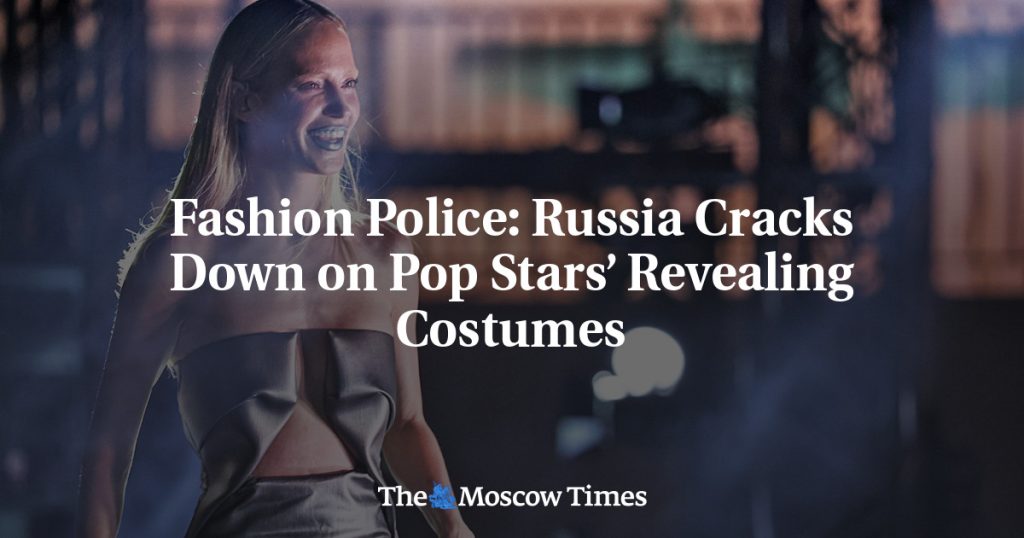Russian politicians are targeting the country’s music scene, criticizing pop stars for performances and outfits deemed too revealing or sexual. Pop singer Glukoza faced backlash after a performance that was deemed indecent by censorship activist Yekaterina Mizulina. Glukoza apologized, blaming the incident on medication she was prescribed. However, her accounts in Russian banks were blocked and she was removed from a festival promo poster in Moscow. This crackdown on pop stars is reminiscent of Soviet era censorship, with harsher restrictions now in place in Putin’s Russia.
The Culture Ministry proposed a dress code for Russian performers, supported by State Duma deputy Irina Filatova, in response to a scandal involving pop star Olga Buzova. Authorities opened a probe into Buzova’s Children’s Day performance, criticizing her revealing outfit. Conservative figures expressed outrage over her appearance in a leather leotard in the majority Muslim republic of Bashkortostan. Buzova and her team later apologized, stating that she always aims to bring love and kindness. Many pop stars voiced their support for Buzova and opposed the idea of a dress code that would limit their artistic expression.
Russian pop stars like Lusia Chebotina and Lolita Milyavskaya pushed back against the proposed dress code, arguing that more conservative costumes could restrict their performances. Chebotina expressed concerns about the physical limitations of such costumes, while Milyavskaya defended revealing bodysuits as essential to an artist’s professional equipment. While Russia has not yet introduced legal punishments for artists who clash with traditional values, journalist Artemy Troitsky believes that recent incidents could lead to greater self-censorship in the industry. Androgynous costumes and gay aesthetics that were once popular are now being phased out.
Troitsky draws parallels between the current censorship in Russia and the restrictions faced by artists in the Soviet Union who had to adhere to certain guidelines in order to succeed. This has led to the disappearance of androgynous costumes and a shift away from gay aesthetics, as artists now face pressure to conform to traditional values. The incidents involving Glukoza and Buzova could mark a turning point in the Russian music industry, nudging artists towards self-censorship to align with the expectations of the authorities. The crackdown on performers reflects a broader trend towards conservative values and restrictions on artistic expression in Russia.


